Adipotide 10mg
Adipotide 10mg
Adipotide (FTPP) induces significant fat loss by targeting and destroying blood vessels supplying fat cells, improves glucose tolerance and insulin sensitivity, and reduces appetite, making it a promising therapeutic agent for obesity and related metabolic disorders (PMID: 22072637).
Adipotide Research Topics:
-
Fat Loss:
Adipotide targets and destroys blood vessels supplying fat cells, leading to their death and resulting in substantial weight loss. Studies in obese rhesus monkeys have demonstrated an average weight loss of 11% over 28 days. (PMID: 22072637)
-
Improved Glucose Tolerance and Insulin Sensitivity:
The peptide has shown rapid improvements in glucose tolerance and insulin sensitivity, which are critical for managing and potentially preventing type 2 diabetes. This improvement is independent of weight loss, suggesting direct metabolic benefits. (PMID: 22072637)
-
Reduced Appetite:
Adipotide treatment has been observed to reduce food intake, contributing to its weight loss effects. (PMID: 22072637)
Peer-Reviewed Studies
Barnhart, K. F., Christianson, D. R., Hanley, P. W., Driessen, W. H., Bernacky, B. J., Baze, W. B., … & Pasqualini, R. (2011). Science translational medicine, 3(108), 108ra112-108ra112.
Zhanguo Gao, Alexes C. Daquinag, Cale Fussell, Amel Djehal, Laurent Désaubry, Mikhail G. Kolonin; Diabetes 1 October 2021; 70 (10): 2204–2212.
Structure
Sequence: Cys-Lys-Gly-Gly-Arg-Ala-Lys-Asp-CysGly-Gly–(Lys-Leu-Ala-Lys-Leu-Ala-Lys)2 Molecular Formula: C152H2s2N44042
Molecular Weight: 2611.41 g/mol
Adipotide Research
1. Adipotide And Fat Loss
Adipotide was developed and placed into phase I clinical trials in 2011 to investigate its ability to kill fat cells. Tests in rhesus monkeys revealed that adipotide causes targeted apoptosis in the blood vessels of white adipose tissue (fat). Without a blood supply, the fat cells simply died. The net result was rapid weight loss, a rapid decrease in body mass index (BMI), and improved insulin resistance characteristics. Interestingly, treatment with adipotide and subsequent fat loss not only improved weight but contributed to changes in eating behavior. Monkeys who lost weight with Adipotide also showed a decrease in food consumption [1].


A. Percent weight loss in control groups (blue) versus those treated with Adipotide (two differing doses, shown in red)
B. Percent reduction in BMI (control versus treatment)
Source: PubMed
A. Shows the change in insulin requirements (area under the curve) for treated (red) and control (blue) groups. The AUC was calculated from an IVGTT test.
B. Shows the insulinogenic index before and after in the treatment (red) and control (blue) groups. Treated groups show a dramatic decrease in insulin secretion.
C. Change in biscuit consumption in treated (red) and control (blue) groups.
Source: PubMed
The targeting of Adipotide to the blood vessels serving fat cells may be mediated by a protein receptor called prohibitin. Prohibitin is a membrane protein that may only be found in blood vessels serving white fat and in cancer cells. It has been demonstrated that Adipotide is associated with this protein [2]. If it turns out that prohibitin is found only in fat vasculature and cancer tissue, then Adipotide testing will be responsible for identifying a fat-specific target that can be used not just for therapeutic purposes, but for diagnostic purposes as well.
2. Adipotide and Cancer
Prohibitin, the molecule that Adipotide likely targets in fat cells has been associated with certain types of cancer [3]. Cancer cells are known to require substantial blood supplies to grow and metastasize. The ability to target prohibitin in cancer cells may provide for advanced therapies that target cancer without harming surrounding tissues.
3. Adipotide and Glucose Tolerance
Glucose tolerance is a term that refers to higher-than-normal levels of blood sugar. The condition is generally diagnosed with a blood test and confirmed by testing fasting glucose levels or by administering a glucose tolerance test in which a set amount of sugar is consumed and then blood levels of sugar are measured. Glucose tolerance is a proxy measure for diabetes, with increased glucose tolerance indicating a trend toward diabetes.
Treating elevated glucose levels can be done with diet and exercise, but these methods require dedication and motivation. They also take considerable time to have an effect. In general, most people with impaired glucose tolerance go on to develop overt type 2 diabetes and require drugs like metformin and, in some cases, insulin. Research into Adipotide has revealed that the peptide produces rapid and weight-independent improvement in glucose tolerance [4]. The latter part is critical because it indicates that a reduction in white fat by Adipotide is effective in reducing glucose tolerance regardless of the impact on weight. In other words, it is the fat loss that is important, not the weight loss. These findings not only open the pathway for developing new treatments for pre-diabetes and diabetes, but they also help to clarify and explain the mechanisms that lead to diabetes in the first place.
There is some argument as to whether Adipotide directly causes fat loss or simply decreases food intake which indirectly leads to fat loss. It is likely that Adipotide directly causes fat loss [5]. This hypothesis is supported by the fact that the peptide causes changes in fat cell density without causing weight loss and affects glucose tolerance without causing weight loss.
Future Adipotide Research
The primary area of adipotide research is in fat loss and diabetes. The peptide targets specific cells in the blood vessels that supply fat tissue, causing those blood vessels to die and, as a result, causing the fat cells they supply to die. Adipotide is an antiangiogenic peptide, which means it targets blood vessels. Anti-angiogenic molecules are of keen interest right now in the treatment of cancer. There is limited, but promising research, on the role of adipotide in cancer.
Adipotide exhibits minimal side effects and low oral and excellent subcutaneous bioavailability in mice. Per kg, dosage in mice does not scale to humans. Adipotide for sale at Life Link Research is limited to educational and scientific research only, not for human consumption. Only buy Adipotide if you are a licensed researcher.
Article Author
The above literature was researched, edited, and organized by Dr. Logan, M.D. Dr. Logan holds a doctorate from Case Western Reserve University School of Medicine and a B.S. in molecular biology.
Scientific Journal Author
Kirstin Barnhart. MD, lead author of “A peptidomimetic targeting white fat causes weight loss and improved insulin resistance in obese monkeys,” is Associate Director, Senior Pathologist at AbbVie – a leading pharmaceutical research and development company. Dr. Barnhart led a study where the treatment with adipotide induced targeted apoptosis within blood vessels of white adipose tissue and resulted in rapid weight loss and improved insulin resistance in obese monkeys. Magnetic resonance imaging and dual-energy x-ray absorptiometry confirmed a marked reduction in white adipose tissue.
Kirstin Barnhart, MD is being referenced as one of the leading scientists involved in the research and development of Adipotide. In no way is this doctor/scientist endorsing or advocating the purchase, sale, or use of this product for any reason. There is no affiliation or relationship, implied or otherwise, between Life Link Research and this doctor. The purpose of citing the doctor is to acknowledge, recognize, and credit the exhaustive research and development efforts conducted by the scientists studying this peptide. Dr. Barnhart is listed in [6] under the referenced citations.
Adipotide Resources
- K. F. Barnhart et al., “A peptidomimetic targeting white fat causes weight loss and improved insulin resistance in obese monkeys,” Sci. Transl. Med., vol. 3, no. 108, p. 108ra112, Nov. 2011.
- 2. M. G. Kolonin, P. K. Saha, L. Chan, R Pasgualini, and W. Arag, “Reversal of obesity targeted ablation of adipose tissue,” Nat. Med., vol. 10, no. 6, Qp. 625-632, Jun. 2004.
- F. I. Staquicini et al., “Vascular ligand-receptor mapping by direct combinatorial selection in cancer patients,” Proc. Natl. Acad. Sci. U. S. A., vol. 108, no. 46, pp. 18637-18642, Nov. 2011.
- D.-H. Kim et al., “Rapid and weight- independent improvement of glucose tolerance induced by peptide designed to elicit apoptosis in adipose tissue endothelium,” Diabetes, vol. 61, no. 9, p11, 2299-2310,Sep. 2012.
- L. Criscione, “Comment on ‘a peptidomimetic targeting white fat causes weight loss and improved insulin resistance in obese monkeys,”‘ Sci. Transl. Med., vol. 4, no. 131, pp. 131Ie2; author reply 131Ir2, AP-r. 2012.
- Barnhart KF, Christianson DR, Hanley PW, et al. A peptidomimetic targeting white fat causes weight loss and improved insulin resistance in obese monkeys. Sci Transl Med. 2011;3(108):108ra112. doi:10.1126/scitranslmed.3002621
$82.00
Description
Adipotide (FTPP) induces significant fat loss by targeting and destroying blood vessels supplying fat cells, improves glucose tolerance and insulin sensitivity, and reduces appetite, making it a promising therapeutic agent for obesity and related metabolic disorders (PMID: 22072637).
Adipotide Research Topics:
-
Fat Loss:
Adipotide targets and destroys blood vessels supplying fat cells, leading to their death and resulting in substantial weight loss. Studies in obese rhesus monkeys have demonstrated an average weight loss of 11% over 28 days. (PMID: 22072637) -
Improved Glucose Tolerance and Insulin Sensitivity:
The peptide has shown rapid improvements in glucose tolerance and insulin sensitivity, which are critical for managing and potentially preventing type 2 diabetes. This improvement is independent of weight loss, suggesting direct metabolic benefits. (PMID: 22072637) -
Reduced Appetite:
Adipotide treatment has been observed to reduce food intake, contributing to its weight loss effects. (PMID: 22072637)
Peer-Reviewed Studies
Barnhart, K. F., Christianson, D. R., Hanley, P. W., Driessen, W. H., Bernacky, B. J., Baze, W. B., … & Pasqualini, R. (2011). Science translational medicine, 3(108), 108ra112-108ra112.
Zhanguo Gao, Alexes C. Daquinag, Cale Fussell, Amel Djehal, Laurent Désaubry, Mikhail G. Kolonin; Diabetes 1 October 2021; 70 (10): 2204–2212.
Structure
Sequence: Cys-Lys-Gly-Gly-Arg-Ala-Lys-Asp-CysGly-Gly–(Lys-Leu-Ala-Lys-Leu-Ala-Lys)2 Molecular Formula: C152H2s2N44042
Molecular Weight: 2611.41 g/mol
Adipotide Research
1. Adipotide And Fat Loss
Adipotide was developed and placed into phase I clinical trials in 2011 to investigate its ability to kill fat cells. Tests in rhesus monkeys revealed that adipotide causes targeted apoptosis in the blood vessels of white adipose tissue (fat). Without a blood supply, the fat cells simply died. The net result was rapid weight loss, a rapid decrease in body mass index (BMI), and improved insulin resistance characteristics. Interestingly, treatment with adipotide and subsequent fat loss not only improved weight but contributed to changes in eating behavior. Monkeys who lost weight with Adipotide also showed a decrease in food consumption [1].


A. Percent weight loss in control groups (blue) versus those treated with Adipotide (two differing doses, shown in red)
B. Percent reduction in BMI (control versus treatment)
Source: PubMed
A. Shows the change in insulin requirements (area under the curve) for treated (red) and control (blue) groups. The AUC was calculated from an IVGTT test.
B. Shows the insulinogenic index before and after in the treatment (red) and control (blue) groups. Treated groups show a dramatic decrease in insulin secretion.
C. Change in biscuit consumption in treated (red) and control (blue) groups.
Source: PubMed
The targeting of Adipotide to the blood vessels serving fat cells may be mediated by a protein receptor called prohibitin. Prohibitin is a membrane protein that may only be found in blood vessels serving white fat and in cancer cells. It has been demonstrated that Adipotide is associated with this protein [2]. If it turns out that prohibitin is found only in fat vasculature and cancer tissue, then Adipotide testing will be responsible for identifying a fat-specific target that can be used not just for therapeutic purposes, but for diagnostic purposes as well.
2. Adipotide and Cancer
Prohibitin, the molecule that Adipotide likely targets in fat cells has been associated with certain types of cancer [3]. Cancer cells are known to require substantial blood supplies to grow and metastasize. The ability to target prohibitin in cancer cells may provide for advanced therapies that target cancer without harming surrounding tissues.
3. Adipotide and Glucose Tolerance
Glucose tolerance is a term that refers to higher-than-normal levels of blood sugar. The condition is generally diagnosed with a blood test and confirmed by testing fasting glucose levels or by administering a glucose tolerance test in which a set amount of sugar is consumed and then blood levels of sugar are measured. Glucose tolerance is a proxy measure for diabetes, with increased glucose tolerance indicating a trend toward diabetes.
Treating elevated glucose levels can be done with diet and exercise, but these methods require dedication and motivation. They also take considerable time to have an effect. In general, most people with impaired glucose tolerance go on to develop overt type 2 diabetes and require drugs like metformin and, in some cases, insulin. Research into Adipotide has revealed that the peptide produces rapid and weight-independent improvement in glucose tolerance [4]. The latter part is critical because it indicates that a reduction in white fat by Adipotide is effective in reducing glucose tolerance regardless of the impact on weight. In other words, it is the fat loss that is important, not the weight loss. These findings not only open the pathway for developing new treatments for pre-diabetes and diabetes, but they also help to clarify and explain the mechanisms that lead to diabetes in the first place.
There is some argument as to whether Adipotide directly causes fat loss or simply decreases food intake which indirectly leads to fat loss. It is likely that Adipotide directly causes fat loss [5]. This hypothesis is supported by the fact that the peptide causes changes in fat cell density without causing weight loss and affects glucose tolerance without causing weight loss.
Future Adipotide Research
The primary area of adipotide research is in fat loss and diabetes. The peptide targets specific cells in the blood vessels that supply fat tissue, causing those blood vessels to die and, as a result, causing the fat cells they supply to die. Adipotide is an antiangiogenic peptide, which means it targets blood vessels. Anti-angiogenic molecules are of keen interest right now in the treatment of cancer. There is limited, but promising research, on the role of adipotide in cancer.
Adipotide exhibits minimal side effects and low oral and excellent subcutaneous bioavailability in mice. Per kg, dosage in mice does not scale to humans. Adipotide for sale at Life Link Research is limited to educational and scientific research only, not for human consumption. Only buy Adipotide if you are a licensed researcher.
Article Author
The above literature was researched, edited, and organized by Dr. Logan, M.D. Dr. Logan holds a doctorate from Case Western Reserve University School of Medicine and a B.S. in molecular biology.
Scientific Journal Author
Kirstin Barnhart. MD, lead author of “A peptidomimetic targeting white fat causes weight loss and improved insulin resistance in obese monkeys,” is Associate Director, Senior Pathologist at AbbVie – a leading pharmaceutical research and development company. Dr. Barnhart led a study where the treatment with adipotide induced targeted apoptosis within blood vessels of white adipose tissue and resulted in rapid weight loss and improved insulin resistance in obese monkeys. Magnetic resonance imaging and dual-energy x-ray absorptiometry confirmed a marked reduction in white adipose tissue.
Kirstin Barnhart, MD is being referenced as one of the leading scientists involved in the research and development of Adipotide. In no way is this doctor/scientist endorsing or advocating the purchase, sale, or use of this product for any reason. There is no affiliation or relationship, implied or otherwise, between Life Link Research and this doctor. The purpose of citing the doctor is to acknowledge, recognize, and credit the exhaustive research and development efforts conducted by the scientists studying this peptide. Dr. Barnhart is listed in [6] under the referenced citations.
Adipotide Resources
- K. F. Barnhart et al., “A peptidomimetic targeting white fat causes weight loss and improved insulin resistance in obese monkeys,” Sci. Transl. Med., vol. 3, no. 108, p. 108ra112, Nov. 2011.
- 2. M. G. Kolonin, P. K. Saha, L. Chan, R Pasgualini, and W. Arag, “Reversal of obesity targeted ablation of adipose tissue,” Nat. Med., vol. 10, no. 6, Qp. 625-632, Jun. 2004.
- F. I. Staquicini et al., “Vascular ligand-receptor mapping by direct combinatorial selection in cancer patients,” Proc. Natl. Acad. Sci. U. S. A., vol. 108, no. 46, pp. 18637-18642, Nov. 2011.
- D.-H. Kim et al., “Rapid and weight- independent improvement of glucose tolerance induced by peptide designed to elicit apoptosis in adipose tissue endothelium,” Diabetes, vol. 61, no. 9, p11, 2299-2310,Sep. 2012.
- L. Criscione, “Comment on ‘a peptidomimetic targeting white fat causes weight loss and improved insulin resistance in obese monkeys,”‘ Sci. Transl. Med., vol. 4, no. 131, pp. 131Ie2; author reply 131Ir2, AP-r. 2012.
- Barnhart KF, Christianson DR, Hanley PW, et al. A peptidomimetic targeting white fat causes weight loss and improved insulin resistance in obese monkeys. Sci Transl Med. 2011;3(108):108ra112. doi:10.1126/scitranslmed.3002621




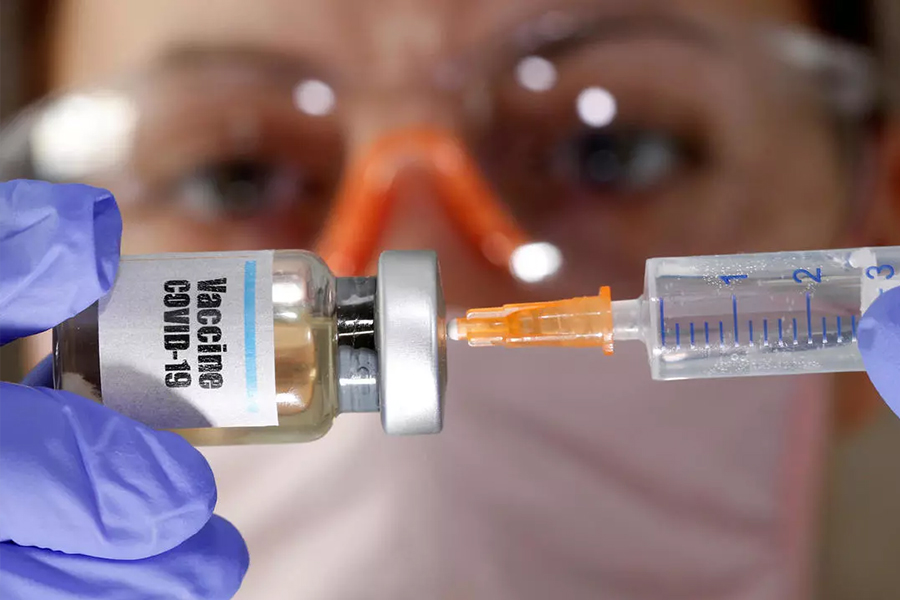


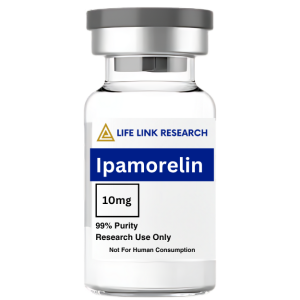
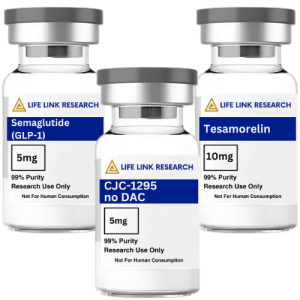
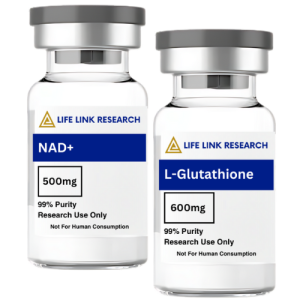
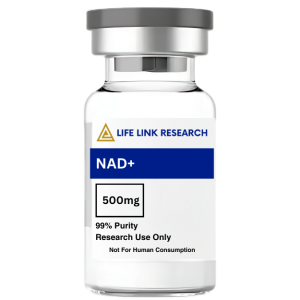
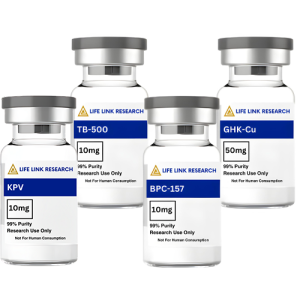
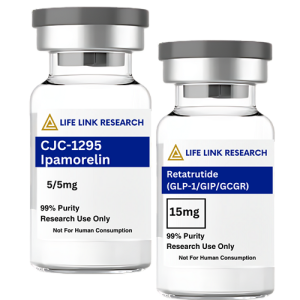


Reviews
There are no reviews yet.